GRINGLEY'S PUBS
The population of Gringley has changed only slightly over the past 200 or so years, within the range of 600 to 800. Today we have a single pub, the Blue Bell. Imagine what life was like when the village was served by four pubs! All four were located in the High Street, which was up to the late 19th century an important through route, a turnpike road, now the A631 trunk road from South Yorkshire to Lincolnshire. Gringley was an important staging post for coaches and other road transport and our pubs helped to provide the travellers’ needs, through blacksmiths, mail deliveries and, of course, refreshments both for the travellers and their horses.
In addition, there is strong evidence that there was a pub on the far side of the canal bridge as we look from the village to the Carrs, opposite Middlebridge Farm.
The Blue Bell, High Street
If we stand in front of the Blue Bell now we can clearly see there was once a cottage next door. This property was also a shop. In time the pub and cottage were amalgamated.

c1900. Mrs Wooffitt, landlady outside the Blue Bell

In this photo we can see what appears to be a shop window in the side wall of the building

The names of the four gentlemen in the photograph above has been a mystery for some time but thanks to Carol Jackson we now know that the gentleman to the far right is Charles Lovock, publican of the Blue Bell from 1936-1939, and the gentleman wearing glasses sitting next to him is Albert Gill. Thank you to Carol, part of the puzzle is solved! (Carol's great-grandmother was Sophia Gill and Albert Gill was Sophia's son).
More recently Heather and Harry Parkinson ran the Blue Bell
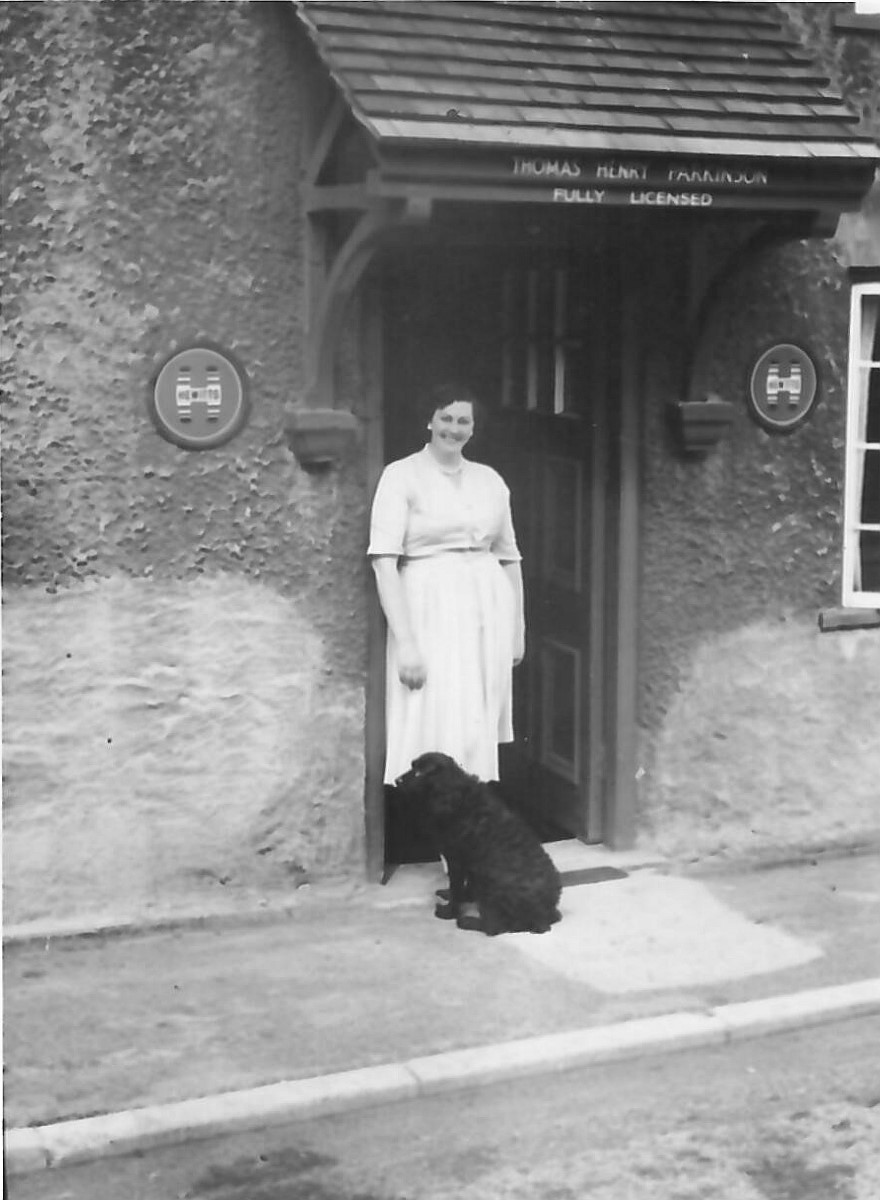
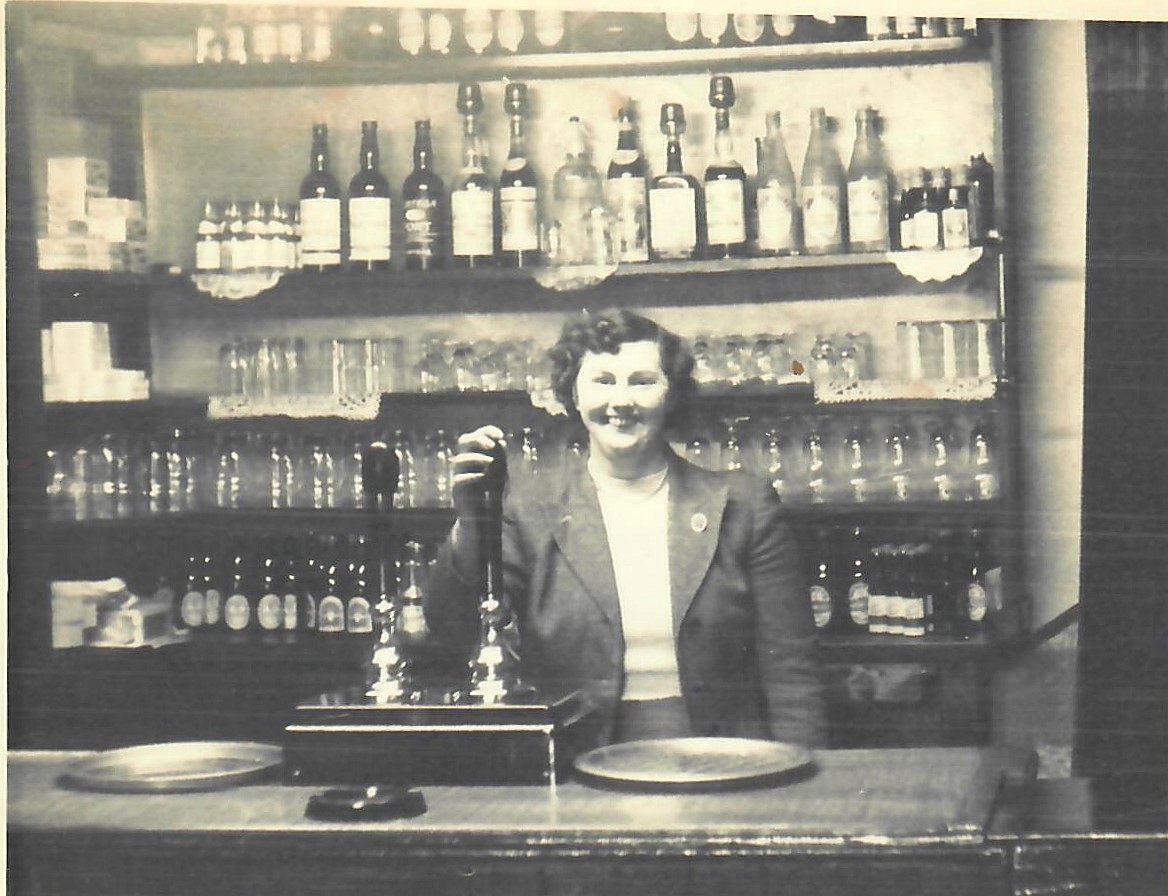
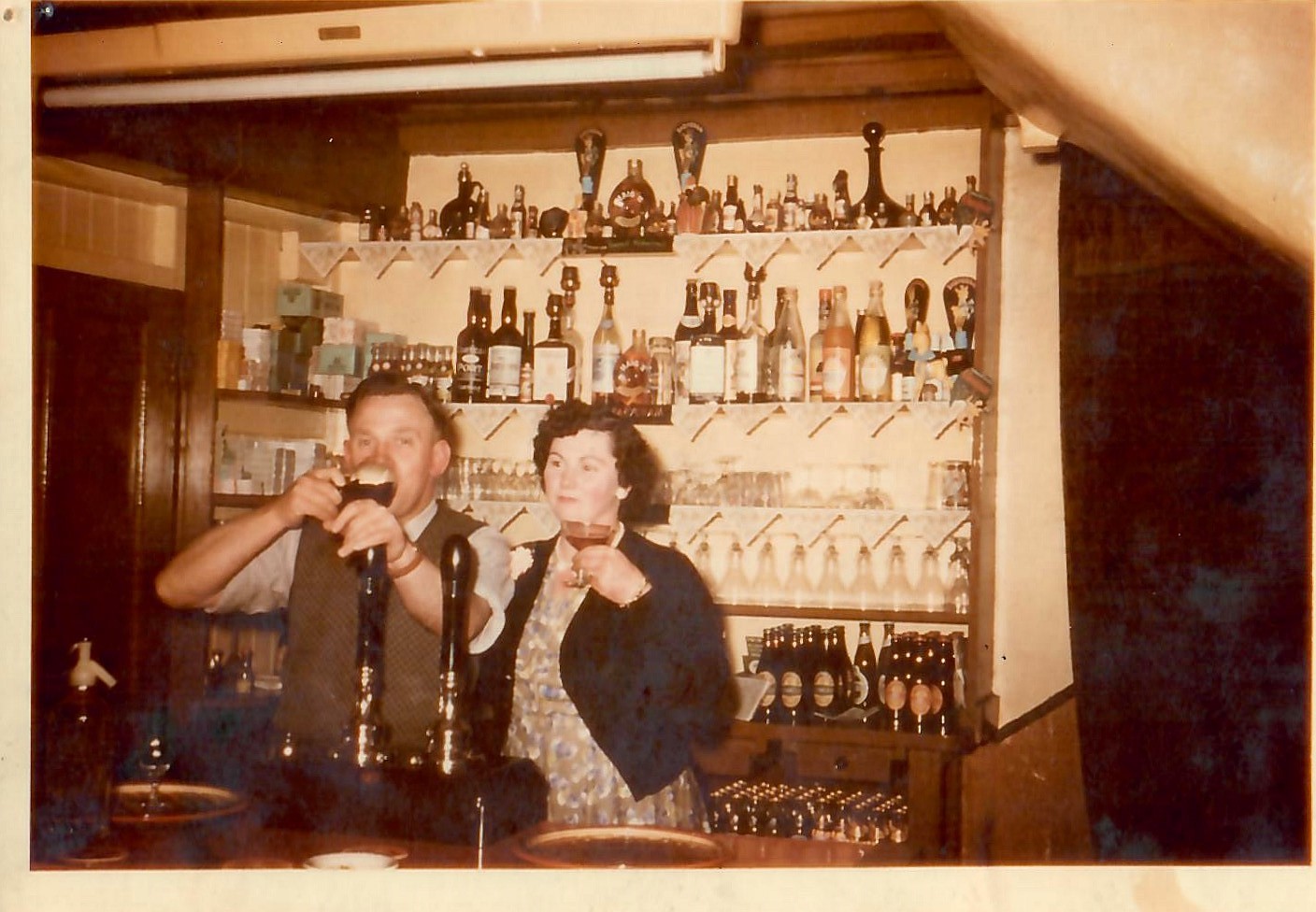
Our grateful thanks to Stephanie who forwarded these lovely photographs of Harry and Heather Parkinson
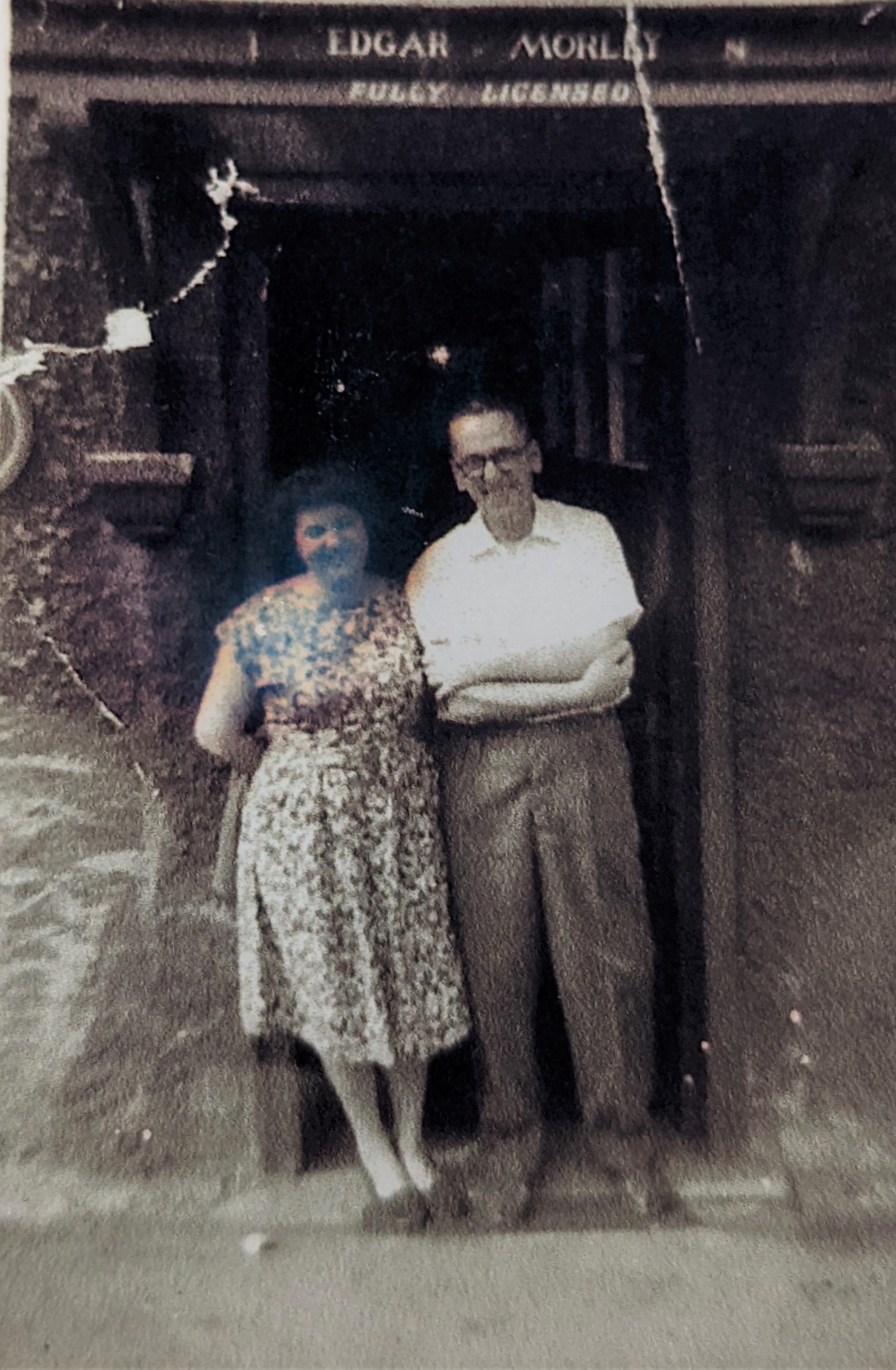
1965
Landlord Edgar Morley with his wife Mary. Edgar ran the Blue Bell from 1961 to 1972. The photograph above was taken in 1965.
Our thanks to Mandy who delved into her family archive to find this lovely photograph.
Mandy remembers many happy days playing in the pub garden at the Blue Bell.
The White Hart, High Street
The White Hart was Gringley’s main coaching inn. It operated as an inn, pub and stabling for horses. In 1844 it was also operated as a post office with mail collections for Louth at 9.00 in the morning and for Bawtry and Sheffield at 4.00 in the afternoon. It finally closed as a pub in 1980 and is now a private house with a single-storey extension, replacing the stables and other outbuildings which were formerly at the rear.

The White Hart
The Cross Keys, High Street (at the top of Horsewells Street)
This site was converted around 1837 from a dwelling house with shop to a public house and blacksmith’s shop. It continued as a privately-owned pub until 1901 when it was transferred to Hole’s Brewery Company of Newark. In 1935 the licence was transferred to a new building to be built on the south side of the proposed new by-pass.

The Cross Keys, the white building to the left of the photo

Cross Keys, 1912 (Looking from Beacon Hill end of High Street towards Ravenhill)
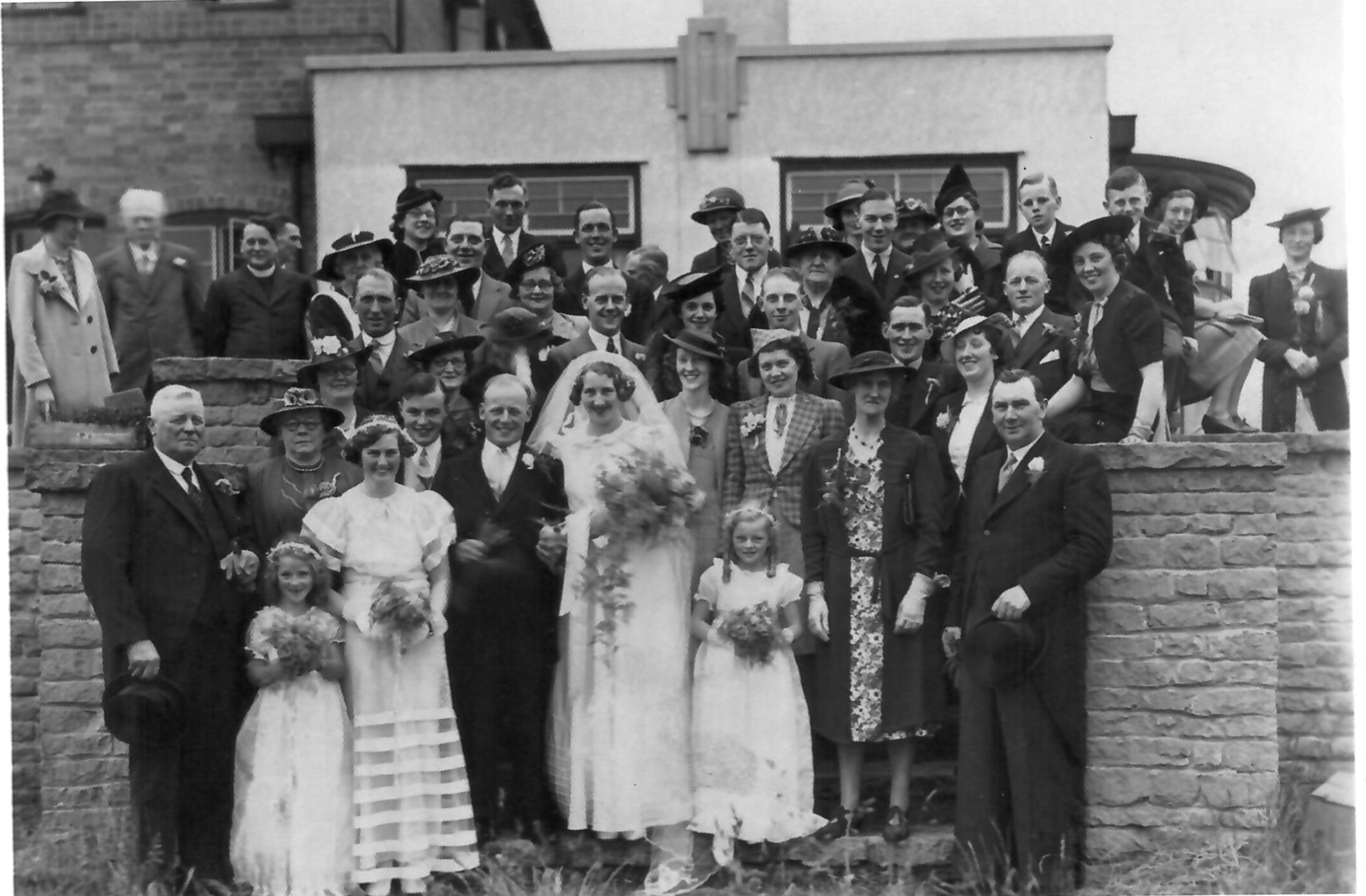
Eileen Teasdale and John Grayson outside the Cross Keys (the dual carriageway site) in June 1939 -
Our thanks again to Stephanie for sharing this photograph
The Butchers Arms, High Street
The landlord in the 1850s was William Revill, whose activities as butcher and victualler lived up to his pub’s name. In a diary record of 1882 Enoch Schofield recalls being born at the Butchers Arms, "a small village pub" opposite the Cross Keys. The Butcher's Arms is now called Sunnyside Cottage (on the High Street, opposite Horsewells Street).

The Butchers Arms - now Sunnyside Cottage. (Needhams Butchers next door)
